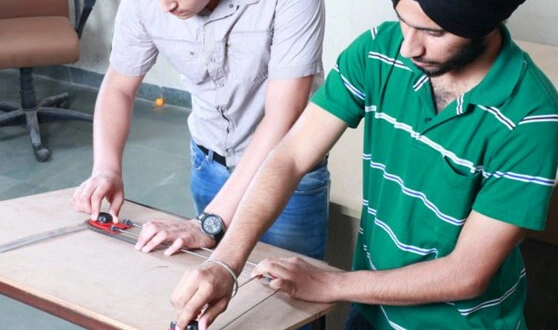On a serious note, Civil engineering has registered the lowest placement rate of a mere 38% between 2012-13 and 2015-16 among six engineering streams approved by the All India Council for Technical Education (AICTE). But still, parents are spending lakhs of rupees on civil engineering degrees, and some students are still pursuing Ph.D. degrees in civil engineering. In this blog, we won’t demotivate students not to take the Civil Engineering degree, but we will provide information on another course that can yield more significant benefits rather than the degree courses.
Top Colleges for Polytechnic Diploma in UP provides the diploma in civil engineering polytechnic to students. Once the diploma is done, students can continue their careers in civil engineering. Students should pass the 10th Std./ SSC examination for regular entry. In special cases, two years after 10+2 examination or equivalent is required.
For lateral entry student should pass 10+2 examination with Physics and Chemistry as compulsory subjects along with Mathematics/Biology subject or 10+2 Science (with Mathematics as one of the Subject) or 10+2 Science with Technical Vocational subject or 10+(2 years ITI) with appropriate Trade in that order shall be eligible for admission to Second Year Diploma Course(s) of appropriate Programme.
In Developing countries, Civil Engineers can get a job in government, private, research industries. Once the diploma is done, civil engineering diploma holders are fit for full-time jobs. Also, Civil engineers have multiple opportunities in the railways, private construction companies, military, engineering services, consultancy services, road projects, building work, consultancy firms, quality testing laboratories, and housing societies.
What do students learn during the course?
The diploma in civil engineering polytechnic creates a strong base for students looking to build a career as a civil engineer. So, a diploma in civil engineering’s curriculum contains basic civil engineering concepts. Moreover, students will get deep theoretical and practical dimensions of construction management and civil engineering, so the course lays the foundation in civil engineering. Hence, the course is about planning, surveying, designing, estimation, construction, costing, etc.
Benefits of the Diploma in Civil Engineering Course
- Better Job Aspects – real estate industry is on the boom nowadays. In metropolitan cities, real estate developers are developing townships for which thousands of civil engineers are required. Moreover, there is an expansion of highways and metro rail projects across India, for which there is an urgent need for civil engineers.
- International Exposure – many countries like Canada, Dubai, Australia, and New Zealand where real estate development is still in progress. These countries require civil engineers, and India has always been a pool of great engineers and doctors. So, after the civil engineering degree, students can migrate to foreign countries and apply for their permanent citizenship, especially in New Zealand, Canada, and Australia.
- Less investment with high returns – Parents have to take heavy loans from banks by mortgaging their properties for engineering degrees. But a diploma in civil engineering does not require much investment, and once the course is done, the students can get the best salary packages.
- Growth Chances – with the practical learning and comprehensive approach, Top Colleges for Polytechnic Diploma in UP provides top-notch training to the students.
A diploma in civil engineering polytechnic can offer better job opportunities to students even after their 10+2.
Civil engineering is an entire field job. Which means you will spend more time outside than sitting at the desk. Civil engineers face new challenges every day. Remember, Civil Engineering is a hands-on focus job where engineers work in a different environment and climatic conditions without a miss. Civil Engineering is a technical and creative field where engineers get lots of appreciation for their engineering marvels. Civil Engineering touches us in our day-to-day life. Civil Engineers build the foundation of our society. They are instrumental in designing, building, and maintaining our roads and drinking water supply. They supervise the infrastructure like bridges, dams, tunnels, etc., that are important in our daily lives.
If students are constantly captivated by planning, and executions plans for the building, pursuing a diploma in civil engineering polytechnic can be a correct decision for you. A Civil engineer is wholly engaged in arranging, planning, and building frameworks and structures for an associating or various rural and urban communities. Thus, civil engineering and the positions linked with the study are the most adored in the market. You could be creating some of the most needed amenities for rural communities and help develop advanced structures for urban communities.
Enrolling in a civil engineering master’s program will also help you build a strong network with peers, faculty, and industry professionals. Many programs provide networking opportunities that help engineering graduates find work directly through their university or alumni network.

